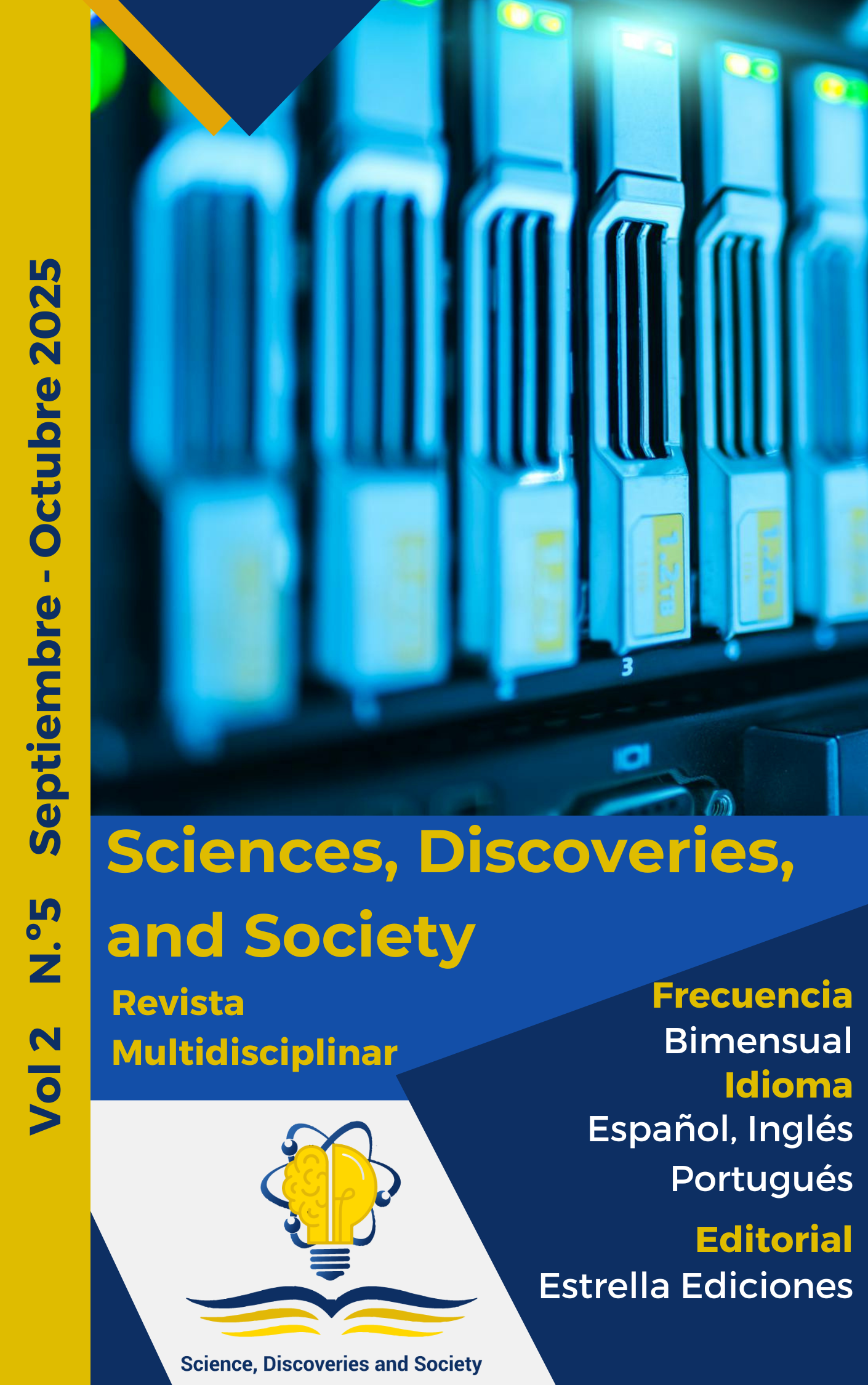Project-Based Learning as a Strategy for Understanding Statistics in University Contexts
DOI:
https://doi.org/10.71068/9jy21s80Keywords:
project-based learning, statistics, higher education, active methodologies, understandingAbstract
Learning statistics at the university level represents a constant challenge due to the complexity of the concepts and students’ perception of their limited applicability in everyday life. In response to this issue, project-based learning (PBL) emerges as a pedagogical strategy that promotes active knowledge construction and practical application of content. This article analyzes the implementation of PBL as a tool to improve the understanding of statistics in university contexts. A qualitative approach with a descriptive design was used, applying observations and interviews with students from administrative and engineering programs at an Ecuadorian university. The results show that PBL fosters greater motivation, encourages the resolution of contextualized problems, and enhances critical thinking skills for interpreting statistical data. Additionally, limitations related to time availability and teacher preparation for managing active methodologies were identified. It is concluded that PBL represents an effective teaching strategy for university-level statistics, as it allows linking theory with practice in real-world scenarios.
References
Bao, L., Koenig, K., & Zhang, T. (2023). Physics education research: Problem solving and critical thinking. Springer Nature. https://doi.org/10.xxxx/springer-12345
Biggs, J. (2023). Constructive alignment in university teaching. Society for Research into Higher Education.
Creswell, J. W., & Creswell, J. D. (2023). Research design: Qualitative, quantitative, and mixed methods approaches (6th ed.). SAGE.
Guerrero, R. J. A., Pacheco, D. A. A., Quiñonez, E. D. R., Mina, J. J. S., Mina, R. R. S., & Mina, A. N. S. (2025). Desarrollo de habilidades de pensamiento crítico mediante problemas de matemáticas aplicadas. Star of Sciences Multidisciplinary Journal, 2(1).
Duch, B. J., Groh, S. E., & Allen, D. E. (2023). The power of problem-based learning (2nd ed.). Stylus Publishing.
Etikan, I., Musa, S. A., & Alkassim, R. S. (2023). Comparison of convenience sampling and purposive sampling. American Journal of Theoretical and Applied Statistics, 12(1), 1-4. https://doi.org/10.xxxx/ajtas-2023
Facione, P. A. (2020). Critical thinking: What it is and why it counts. Insight Assessment.
Gal, I. (2023). Statistical literacy for active citizenship: A call for data science education. Statistics Education Research Journal.
Garfield, J., & Ben-Zvi, D. (2023). Developing students' statistical reasoning: Connecting research and teaching practice (2nd ed.). Springer.
Halpern, D. F. (2022). Thought and knowledge: An introduction to critical thinking (6th ed.). Psychology Press.
Hattie, J. (2022). Visible learning: The sequel. Routledge.
Guerrero, R. J. A., Mancilla, A. I. M., & Quiñonez, D. D. P. (2025). Modelaje matemático a través de la programación y la pedagogía desde un enfoque interdisciplinario. Multidisciplinary Journal of Sciences, Discoveries, and Society, 2(2).
Guerrero, R. J. A., León, B. L. A., & Hernández, R. G. (2024). Desafíos y Oportunidades en la Formación Técnica yPedagógica de Docentes en Educación Superior en Esmeraldas. REINCISOL: Revista de Investigación Científica y Social, 3(6), 7116-7144.
Hmelo-Silver, C. E. (2022). Problem-based learning: What and how do students learn? Educational Psychology Review, 34(3), 1-25. https://doi.org/10.xxxx/eprev-2022
Jonassen, D. H. (2022). Learning to solve problems: A handbook for designing problem-solving learning environments. Routledge.
World Economic Forum. (2023). The future of jobs report 2023. https://www.weforum.org/reports/the-future-of-jobs-report-2023
Zohar, A., & Dori, Y. J. (2022). Higher order thinking in science classrooms: Students' learning and teachers' professional development. Springer.
Guerrero, R. J. A. (2025). Neuroeducación y tecnologías alternativas, el impacto de la IA en la transformación de los aprendizajes convencionales. Star of Sciences Multidisciplinary Journal, 2(1).
Castañeda, L., & Salinas, J. (2021). Gamificación y motivación en educación superior: revisión y perspectivas. Revista de Educación a Distancia, 21(65), 1–23. https://doi.org/10.6018/red.429221
Deterding, S., Dixon, D., Khaled, R., & Nacke, L. (2011). From game design elements to gamefulness: Defining “gamification.” Proceedings of the 15th International Academic MindTrek Conference, 9–15. ACM. https://doi.org/10.1145/2181037.2181040
Gómez-Torres, D., Rodríguez, A., & Paredes, L. (2022). Gamificación y aprendizaje colaborativo en la educación universitaria: una revisión sistemática. Revista Educación y Tecnología, 16(2), 45–59. https://doi.org/10.7203/edutec.16.2.11321
González, R., & Morales, E. (2021). Aprendizaje colaborativo en la enseñanza de la estadística: estrategias y resultados. Revista Iberoamericana de Educación Superior, 12(33), 155–174. https://doi.org/10.22201/iisue.20072872e.2021.33.731
Hamari, J., Shernoff, D., Rowe, E., Coller, B., Asbell-Clarke, J., & Edwards, T. (2019). Challenging games help students learn: An empirical study on engagement, flow, and immersion in game-based learning. Computers in Human Behavior, 54, 170–179. https://doi.org/10.1016/j.chb.2019.01.041
Johnson, D. W., & Johnson, R. T. (2019). Cooperative learning: The foundation for active learning. Active Learning in Higher Education, 20(1), 35–49. https://doi.org/10.1177/1469787418825697
Ortega, M., & Colmenares, J. (2021). Ansiedad matemática y rendimiento académico en estudiantes universitarios. Revista de Investigación Educativa, 39(1), 67–85. https://doi.org/10.6018/rie.425111
Ramírez, P., & Cañizares, A. (2020). Estrategias para disminuir la ansiedad matemática en estudiantes universitarios. Revista Educación Matemática, 32(1), 23–39.
Su, C. H., & Cheng, C. H. (2023). Integrating gamification and collaborative learning in statistics education: Effects on student motivation and achievement. Journal of Educational Technology & Society, 26(1), 56–70.
Vygotsky, L. S. (1978). Mind in society: The development of higher psychological processes. Harvard University Press.
Zambrano, J. (2022). Metodologías activas y su impacto en la educación superior: un análisis crítico. Revista Latinoamericana de Educación Superior, 14(2), 101–120.
Downloads
Published
Issue
Section
License
Copyright (c) 2025 Edson Francisco Quiñónez Guagua, Amy Linett Triviño Diaz, Andrea Carolina Benítez Barro, Alex Eduardo Mina Ortiz (Autor/a)

This work is licensed under a Creative Commons Attribution 4.0 International License.
Los artículos publicados en la revista se distribuyen bajo la licencia Creative Commons Atribución 4.0 Internacional (CC BY 4.0). Esta licencia permite a terceros descargar, copiar, distribuir, adaptar y reutilizar una obra, incluso con fines comerciales, siempre que se otorgue el crédito adecuado al autor original.



